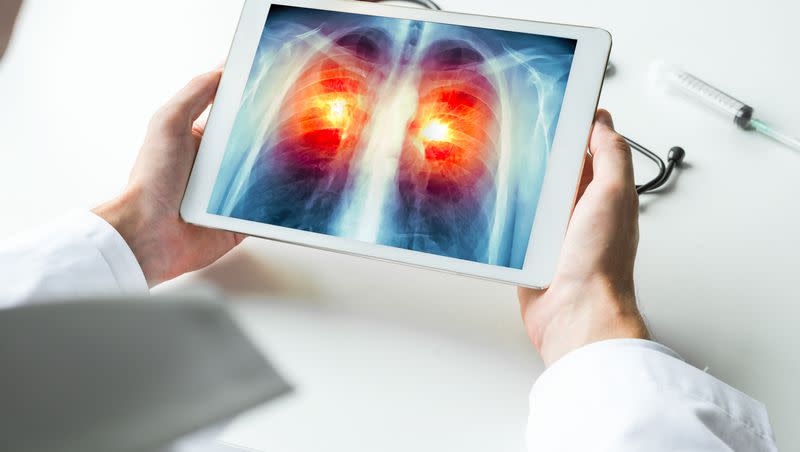Doctors are pressing adults to have more lung cancer screenings

Doctors are urging more adults who’ve had a history of smoking to have a low-dose CT screening for lung cancer in order to lower mortality rates, according to The Wall Street Journal.
With lung and bronchus cancer being the most deadly cancer in the U.S., the Journal said a CT scan can catch the disease earlier and save lives.
Per the American Lung Association, when detected early, the five-year survival rate for lung cancer is about 60% compared to when it’s caught late, which decreases to 7%.
Dr. Robert Winn, director of the Virginia Commonwealth University Massey Cancer Center, told the Journal, “Most of them don’t even know that if we catch these things early, they’re curable.”
“Medical groups recommend annual, low-dose scans starting at 50 for people who smoke heavily or recently quit. Insurers often cover the test,” the article said.
Related
What is a low-dose CT screening?
The U.S. Centers for Disease Control and Prevention said a low-dose computer tomography is a short, painless procedure where you lie down on a table and an X-ray machine uses a small amount of radiation to create images of your lungs.
The procedure is done before any extreme symptoms show or when the patient may not have a history of that disease, per the CDC.
While taking a low-dose CT scan can run the risk of a false-positive — a result where the machine falsely detects cancer in a patient — the CDC said that’s why the only ones recommended for the screening are adults with high risk of developing lung cancer because of excessive smoking or age.
Dr. Patrick Hwu, president and chief executive officer of the Moffitt Cancer Center in Tampa, Florida, told the Journal, “It would save the most lives immediately.”
The Journal said doctors are “pushing harder to expand lung-cancer screening and take advantage of newer treatments that have changed the disease’s outlook.”
Related
What are the first signs of lung cancer?
Early symptoms of lung cancer include wheezing, chest pain, fatigue, shortness of breath and a cough that worsens or produces blood, according to the Cancer Treatments Centers of America.
The American Cancer Society added symptoms like loss of appetite or unexplained weight loss and said, “Most lung cancers do not cause any symptoms until they have spread, but some people with early lung cancer do have symptoms.”
Cleveland Clinic listed the stages of lung cancer and said the cancer first infects the top lining of the lung or bronchus, spreading to lymph nodes inside the lung and infecting both lungs and surrounding organs by the last stages.